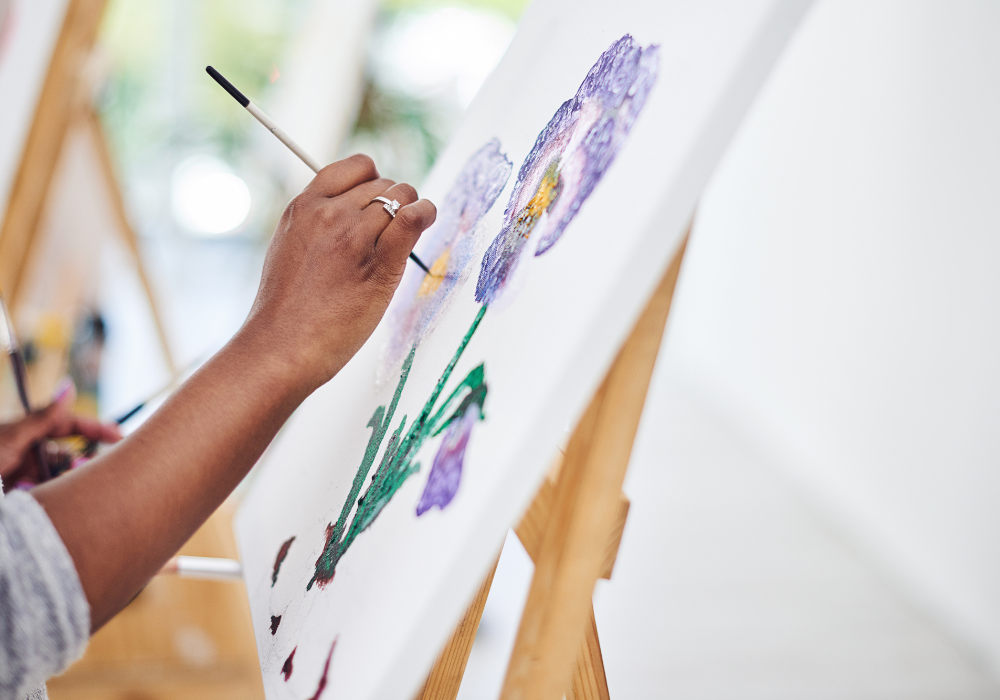If you feel stuck, these questions might be the wake-up call you need.

Sometimes you wake up and realize you’ve been sprinting toward something you’re not even sure you want. Maybe the job looks good on paper, the routine makes sense, or everyone says you’re doing great—but deep down, something feels off. That nagging restlessness? It’s not a crisis. It’s a signal. It means it might be time to stop, zoom out, and ask some better questions.
Because your life doesn’t need to look like anyone else’s. Your goals can change. Your values can evolve. And the truth is, we rarely get the space to ask ourselves what really matters—until we hit a wall. These questions aren’t about having all the answers. They’re about clearing the mental clutter and reconnecting with the stuff that actually feels alive to you. If you’re ready to get honest with yourself, start here. You might be closer to clarity than you think.
1. What am I chasing—and is it still something I want?

We all chase things: status, stability, love, validation, freedom. Sometimes we picked the goal. Sometimes it was handed to us. But over time, even a dream can turn into a treadmill if you never stop to check whether it still fits. According to Vivian Chung for Real Simple, conducting a ‘life audit’—a structured reflection on various life areas—can help individuals realign their goals with personal values, leading to more intentional and fulfilling life choices.
This question doesn’t mean you have to quit your job or abandon your plans. It just means giving yourself permission to reevaluate. Maybe you still want it—but for a different reason. Maybe you’ve outgrown it. Or maybe you’re chasing something because the alternative scares you.
Whatever comes up, it’s worth listening to. Life changes, and you’re allowed to change with it. The goal isn’t to hustle harder. It’s to make sure what you’re running toward still feels meaningful when you get there.
2. What parts of my life feel most alive—and when did I last feel them?

Pay attention to the moments when time moves differently—when you lose track of the clock, feel fully present, or get a quiet hit of joy. That’s aliveness. It doesn’t always come from big wins or major milestones. Sometimes it’s in the middle of something simple: a conversation, a creative spark, a walk that clears your head. Per researchers from UC Davis, individuals who regularly experience ‘flow’—a state of complete absorption in activities—report higher levels of happiness and resilience, as flow helps refocus thoughts away from stress and enhances overall well-being.
The question is: when did they happen last? And how often are you making space for them now? Life gets noisy. Responsibilities pile up. But if the things that make you feel most like yourself are buried under endless to-do lists, it’s easy to forget they even exist. This question isn’t about chasing pleasure 24/7—it’s about noticing where your energy actually rises instead of drains. That’s not indulgent. That’s information. And it’s worth building your life around, not just fitting in.
3. Who am I trying to impress—and what would I do if they stopped watching?

So much of what we do—career choices, Instagram captions, even daily habits—is shaped by who we think is paying attention. Parents, partners, bosses, strangers on the internet. It happens quietly, but it’s powerful. Allie Volpe for Vox states, the pursuit of external validation is a deeply ingrained aspect of human behavior, intensified by modern society’s reliance on metrics such as likes and followers, making validation almost a form of currency.
Ask yourself who you’re trying to impress. Then imagine they suddenly stopped watching. Would you keep doing what you’re doing? Would you still want the things you want? This isn’t about becoming reckless or selfish. It’s about being honest. Because if your life is mostly a performance, it’s going to feel exhausting no matter how successful you get. The real goal? Making choices that would still feel right even in total privacy. That’s where peace lives—not in applause, but in alignment.
4. What am I avoiding by staying busy?

Staying busy can feel productive. It gets praise. It keeps you distracted. But sometimes, the reason we fill every hour is because we’re afraid of what might surface in the quiet. Stillness has a way of bringing up the questions we don’t want to answer—and the truths we’re not ready to face. But ignoring them doesn’t make them go away.
This question asks you to pause and look underneath the hustle. Are you avoiding burnout by pushing through it? Avoiding grief by staying booked? Avoiding hard conversations by keeping your calendar full? Busyness can become a shield.
But real clarity doesn’t show up when you’re sprinting. It shows up when you stop. Letting yourself feel the discomfort is how you get to what’s real. That’s not weakness—it’s courage. And if you can sit with the thing you’ve been avoiding, it might just stop running your life from the background.
5. What would my younger self be proud of—and what would they question?

Looking back isn’t about nostalgia. It’s about perspective. Your younger self had raw instincts—about joy, fairness, creativity, love. They hadn’t yet been shaped by expectations or fear. Asking what that version of you would think now doesn’t mean you’ve failed or sold out. It just helps you check in with the parts of you that might’ve been silenced along the way.
Would they be proud of your courage? Surprised by how little time you spend doing what you love? Confused about the pressure you’re under? There’s wisdom in how you used to dream, even if those dreams have evolved. This question reconnects you with your core values before life got complicated. You don’t need to live in the past—but sometimes the kid you used to be is the only one brave enough to tell you the truth.
6. Where am I settling—and what would it take to stop?

Settling doesn’t always look like failure. Sometimes it’s comfort. Stability. The thing that “works” even if it doesn’t light you up. It’s staying in a job that drains you, a routine that numbs you, or a version of yourself that feels safer than honest. You tell yourself it’s fine—but if you’re honest, fine isn’t the goal.
This question isn’t about blowing up your life. It’s about getting curious. What would it actually take to stop settling? More confidence? A plan? Support? Less fear? Naming it gives you a starting point. And from there, you can start shifting. Bit by bit. Risk by risk. You don’t have to leap into the unknown tomorrow—but you do have to admit if you’re living small out of habit. Settling keeps things familiar, but it also keeps you stuck. The trade-off? Growth rarely feels safe at first—but it always feels more alive.
7. What have I outgrown that I’m still holding onto?

Not everything you picked up along the way was meant to stay with you forever. Beliefs, habits, relationships, roles—they all served a purpose once. But some of them don’t anymore. And if you don’t regularly check in with what’s still serving you, you’ll end up carrying a life that quietly weighs you down.
This question can be uncomfortable, because letting go often feels like failure. But it’s actually maturity. Outgrowing isn’t quitting—it’s evolving. That friendship you keep out of guilt? That identity you maintain because it’s who you’ve always been? You’re allowed to release it. You’re allowed to change. Holding onto something just because it used to fit isn’t loyalty—it’s fear. And fear is not a life plan. Letting go creates space. And space is what purpose needs to grow.
8. What am I doing because I love it—and what am I doing just to survive?

Survival isn’t shameful. It’s human. Bills have to get paid. Kids need to be fed. Not every part of life gets to be a passion project. But if everything you’re doing is in the name of staying afloat, it’s worth asking: where’s the joy? Where’s the part that’s just for you?
This question doesn’t mean every task should be thrilling. But it helps you notice what fills you back up—and what only empties you. Maybe the answer shifts depending on the season. Maybe you’ve been in survival mode longer than you realized.
Either way, naming what’s for love versus what’s for survival gives you clarity. And from clarity, you can start to rebalance. You don’t need to quit everything. But you do need something in your life that reminds you why you’re still trying so hard. Something that makes the struggle feel like it’s leading somewhere worth going.
9. What would I do if I wasn’t afraid?

Fear is sneaky. It doesn’t always show up as panic—it shows up as overthinking, hesitation, self-doubt, perfectionism. It sounds like, “Now’s not the right time,” or “I’m not ready yet.” But underneath all of that is often something you want. Something that lights up a part of you you’ve been taught to quiet.
This question peels back the layers. If fear wasn’t calling the shots, what would you actually choose? What would you try, say, build, walk away from? The answer doesn’t mean you have to do it today. But it gives you a map. It reminds you what you’re capable of before fear convinced you otherwise. And even if fear never fully goes away, you can learn to move with it instead of waiting for it to disappear. Courage isn’t the absence of fear—it’s choosing something bigger than fear. That choice changes everything.
10. What does a meaningful life look like to me right now?

Purpose isn’t a fixed destination. It’s not one perfect job, one final role, or one big achievement. It’s a direction. A way of living that feels aligned, honest, and awake. And it shifts as you do. So instead of trying to find your capital-P “Purpose,” start by asking what meaning looks like in this season of your life.
Maybe it’s showing up for your family. Maybe it’s starting something creative. Maybe it’s finally slowing down. The point is: meaning is personal. It’s not what impresses people. It’s what nourishes you. And when you get clear on that, decision-making gets easier. You stop chasing everything and start choosing on purpose. You start living from the inside out, not the outside in. Purpose doesn’t have to be grand—it just has to be real. And that begins with asking the right questions. This one might be the most important of all.